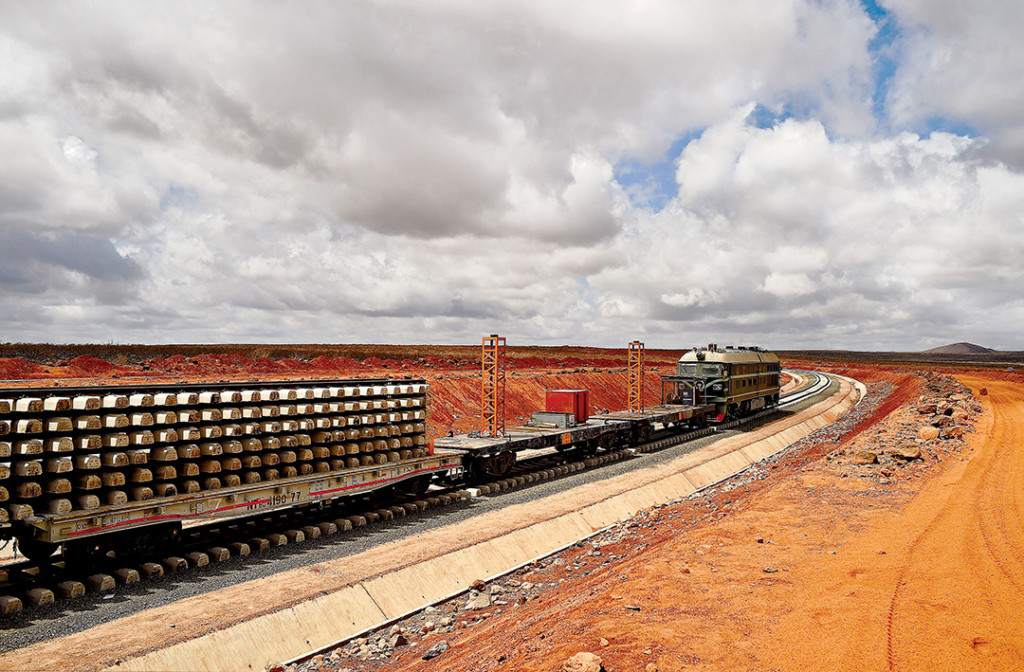Djibouti and Ethiopia have completed a railway linking their two capitals, with the hope that the link might eventually extend across the continent to West Africa.
In June 2015, Djiboutian President Ismail Omar Guelleh and Ethiopian Prime Minister Hailemariam Desalegn attended the ceremonial laying of the last track in the 752-kilometer railway, linking the port capital of Djibouti with landlocked Ethiopia’s capital, Addis Ababa.
The first scheduled train was expected to use the desert line in October 2015, reducing transport time between the capitals to less than 10 hours, rather than the two days it had taken for trucks using a congested mountain road.
“Some 1,500 trucks use the road every day between Djibouti and Ethiopia,” said Abubaker Hadi, chairman of Djibouti’s Port Authority. “In five years, this figure will rise to 8,000. This is not possible; this is why we need the railway.”
With a capacity of 3,500 tons — seven times the capacity of the old line at its peak — the new electrified line will mainly be used for transporting goods to Africa’s second-most-populous nation.
Ethiopia’s economy is growing fast, with almost 90 percent of its imports going through Djibouti. Both countries benefit from economic integration, with Ethiopia gaining access to the sea and Djibouti gaining access to Ethiopia’s emerging market of 95 million people.
“Ethiopia is an important country for us,” said Djiboutian Transport Minister Ahmed Moussa Hassan. “It is the main customer for our logistics facilities, and this new railway line will strengthen trade.”
Djibouti, the smallest nation in the Horn of Africa, is embarking on large infrastructure projects, building six new ports and two airports in the hope of becoming the commercial hub of East Africa.

